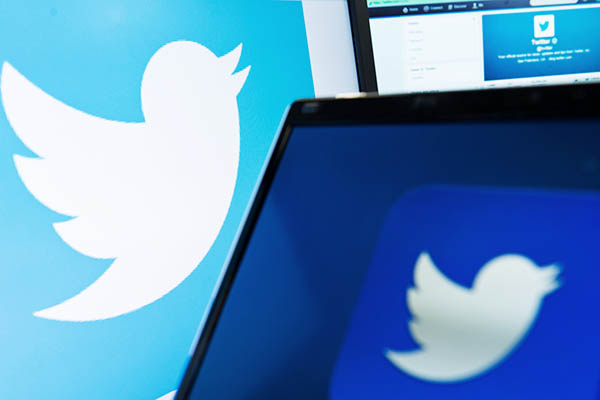
Leon Neal—AFP
Social network says it is implementing safeguards to prevent any similar occurrence in future
Twitter said it had boosted security measures on Friday in response to a rogue employee’s move cutting off Donald Trump’s account, an 11-minute outage, which drew mocking praise from the president’s critics but also warnings of a dangerous precedent.
The U.S. social network initially said the account had been “inadvertently deactivated due to human error” after the outage late Thursday but subsequently indicated it was done intentionally by a departing worker on his or her final day. Hours later Friday, Twitter said it implemented “safeguards to prevent this from happening again.”
“We won’t be able to share all details about our internal investigation or updates to our security measures, but we take this seriously and our teams are on it,” a tweet from Twitter government said.
Trump reacted on Twitter nearly 12 hours after the shutdown. “My Twitter account was taken down for 11 minutes by a rogue employee. I guess the word must finally be getting out-and having an impact,” he tweeted.
The social media platform lit up with reaction to the deactivation—with some calling the employee a “hero” and others expressing concern.
Democratic Representative Ted Lieu, another prolific tweeter, wrote: “Dear Twitter employee who shut down Trump’s Twitter: You made America feel better for 11 minutes. DM me & I will buy you a Pizza Hut pizza.” David Jolly, a former member of Congress, tweeted that the employee “could become a candidate for the Nobel Peace Prize.”
But the temporary disappearance of the account—and the glee this prompted among the president’s detractors—drew fire from others. “Liberals were celebrating for the 15 minutes that Trump’s Twitter disappeared, proving once again they love censorship and hate free speech,” tweeted Makada Duncanson, a conservative writer.
Jennifer Grygiel, a Syracuse University professor who studies social media, said the deactivation is worrisome. “This is no laughing matter,” she said. “This is a serious issue and one of national security.”
Grygiel wrote an essay earlier this year calling for “pre-moderation” of Trump’s account “to prevent an accidental war,” which could be sparked by spoofing or disruption of the presidential account. “We need to make sure that an intern cannot easily compromise that account,” she said.
Grygiel has said some accounts that could have “systemic” importance for national security or financial markets should be subject to human review with a delay of a few seconds. If something false or incendiary is tweeted, there is no way to take it back, and this could lead to war or a shock to financial markets, Grygiel noted.
“It is shocking that some random Twitter employee could shut down the president’s account,” Blake Hounshell, the editor-in-chief of Politico Magazine, wrote on Twitter. He added: “Seriously, what if this person had tweeted about a fictional nuclear strike on North Korea?”
Jeff Jarvis, a City University of New York journalism professor and longtime Trump critic, said the shutdown “is a serious matter but I count this as an act of protest that made a strong statement, a statement I endorse.”
The president has 41.8 million followers on his personal Twitter account, which he uses to fire off controversial and attention-grabbing comments. Trump has used the social media site to announce policy. He surprised Pentagon chiefs in July by tweeting that transgender people would be barred from serving “in any capacity” in the U.S. military, a ban that has since been blocked by a U.S. court.
Trump’s official White House account, @POTUS, which has 20.9 million followers, was apparently not affected by the outage.
Trump’s critics have on several occasions called for Twitter to shut down his account, arguing that his tweets may violate Twitter’s terms on hate speech or abuse. Some said Trump’s tweeting about North Korea—including a comment where he said its leader “won’t be around much longer” violated Twitter’s terms of service banning threats of violence.
Twitter responded with a pledge to review its policy while noting that “newsworthiness” and public interest must be considered in deciding whether to take down a tweet.
Grygiel said it is problematic that the president is using a private entity to issue important statements on policy. “There are communications risks with the president’s reliance on a public communications company,” she said, noting that Twitter has a right to ban Trump at any time. “I would want to know that President Trump has a fallback way to issue a message if the tweets stop flowing.”
